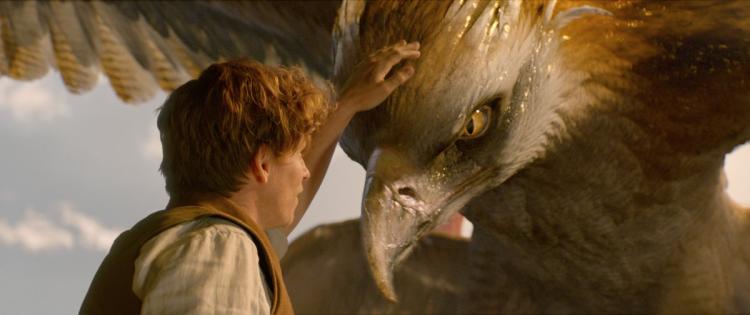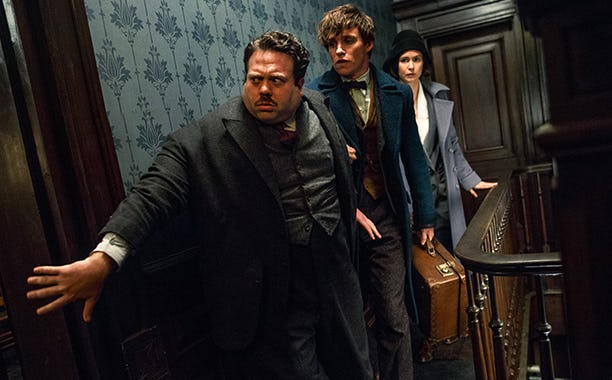SPOILERS THROUGHOUT
Disney brought the Star Wars property for an ungodly sum from series creator George Lucas in 2012 with the promise of a new trilogy of films closer in tone to the beloved original trilogy and not the much-despised Prequel series. Rumours also swelled of spin-off films, perhaps in an attempt to replicate the success of Disney's Marvel Cinematic Universe, to fill the gap between the main episodes of the series. Star Wars Episode VII: The Force Awakens was, without a doubt, one of the biggest pop culture events of the last 10 years. The film has issues but the overall effort and affection for the series shines through, which made an accessible film for new-comers, whilst giving fans what lacked in the prequel trilogy. One year down the line, Rogue One, the first of the spin-off films, has arrived. Can it match the heart and emotion of The Force Awakens and the original films or does it strike out on its own to make a new kind of Star Wars film? The answer, as always, is complicated.
Rogue One is set days before Episode IV. Luke is trapped on Tatooine, unaware of his impending future destiny. Han Solo is causing trouble somewhere. Princess Leia is bravely leading the Rebellion against the evil Empire. Jar-Jar is in a ditch somewhere. And the Rebels have learnt of the Empire's plans to create a new battle-station, with the power to destroy planets, named the Death Star. The Rebels have received contact from the disillusioned creator of the Death Star, who reveals that the Empire are holding plans that reveal its only weakness. Having been whisked from her father at a young age, criminal Jyn Erso is brought in by the Rebels to make track down the Death Star's creator - their connection? They are father and daughter. Jyn and a band of not-so merry rebels must team up to track down her father and reveal the location of the plans, giving our heroes the only hope of destroying the super-weapon.
Rogue One has been famously dogged by rewrites and reshoots. According to the rumours, Disney wanted a film closer in tone to The Force Awakens (which stands as the third highest grossing films of all time) - i.e. lighter, fun, charming - which seemed to clash with the original intention of these side films; to offer a different light on the Star Wars universe. The issue here is that clearly these two different tones and visions clash with each other in the finished product. While Rogue One has plenty to offer long-term fans of the series, as a film it suffers from a confused tone and under-written characters, which won't make many new converts to the franchise.
The best elements of Rogue One are the re-creations of the retro 70s vision of the space life. The art design of the film is spot on, from the re-creations of the costumes, the lighting, the sets and even the hairstyles (I've not seen this many must aches in a sci-fi film for a long time) which gives it a familiar yet different tone. The film is at its best when it combines these familiar elements to create something new (akin to The Force Awakens) - the final 40 minutes offer a documentary-style ground combat linked with an exciting heist of the Death Star plans, which is unlike anything Star Wars has ever produced. It might be one of the series' best staged action scenes (the only thing it lacks is emotional weight but I'll get to that). Seeing AT-ATs again, returning from The Empire Strikes Back, ripping through the jungle planet and causing mayhem is a sight to behold on a pure fan level. The exciting final ten minutes which link it directly back to the opening of Episode IV is fun and unexpected (and features one of cinema's greatest Big Bads making an unforgettable entrance). In general, the action scenes are well handled, as we are introduced to a plethora of new planets and locations.
Technically, everything is shot perfectly and has an excellent art design but what holds Rogue One back is the script. Jyn is not given sufficient personality outside of the life-defining events that occurs in her childhood. There are hints of a troubled past, with Jyn going off the rails but they aren't given time to be fully explored. On paper, the side-characters sound like fascinating new additions to the Star Wars universe. A disillusioned gorilla fighter who rejects the ideals of the Rebels but still wants to combat the Empire. An Empire general struggling with the bureaucracy of building a super-weapon. A normal Rebel solider who blindly follows the orders of his superiors. An Empire defector (who is too similar to Finn from Episode VII, just lacking John Boyega's natural charm). These add a new dimension to the universe, in particular revealing new elements to the previously good-as-gold Rebellion. But add to this an appearance from Darth Vader, a surprisingly prominent role the creepy CGI recreation of Peter Cushing, more Rebel internal conflicts, a sassy, pissed-off robot (K-2SO, played by Alan Tudyk, is probably the character highlight of the film), a large scale space battle and you can probably see that the film is overloaded with elements.
I honestly wish another attempt could have been made at the script or the edit to prop up Jyn and the members of Rogue One, flesh them out and produce a tighter story with an emphasis on the more gorilla-documentary style that the final 40 minutes revels in. Whether this was in the original edit or not, we'll likely never know but the victims of the unfocused narrative are Forrest Whitaker's Saw Gerrera (who I'm told will be expanded upon in Rebels - but cross-media narratives are for another day...) and the side-characters of the Rogue One team. Donnie Yen in particular has the makings of a fascinating character, a blind warrior who believes in the Force but the script focus doesn't give him chance to shine. While no where near as hollow as Suicide Squad, I was reminded of the scene in which the pyro-villian claimed the team were his "family" with no narrative thrust or character development to suggest this. Spoilers but as the characters are picked off one-by-one in in the final 40 minutes of Rogue One it is hard to feel emotional (with the exception of K-2SO). A potentially powerfully moment, which I do commend Disney for committing to; it is well executed and beautifully shot but is under-cut by the under-written characters.
The problem is, that certainly for the cinematic stories, Star Wars is fairly limiting in what you can do. Audiences like the Skywalkers, Darth Vader, the family drama etc, the space battles, Jedi, the Force etc. and I don't think a big studio like Disney would try to work outside of this stable of familiar staples. In television, games and novels you can expand as much as you want - these are designed for the hardcore fan base who legitimately want to see new sides of the universe. Video games such as Knights of the Old Republic or TV's The Clone Wars and Star Wars: Rebels offer exciting new characters and fresh stories to tell for the fanbase, that don't try to appeal to a mainstream audience. One of the biggest losses to Star Wars being brought by Disney was the retconning of 20 years worth of Expanded Universe stories. In the cinema, I just don't think we are going to see this kind of diversity (for example, the rumoured spin-off films are: a young Han Solo film, a Boba Fett film, an Obi-Wan film). Rogue One falls into this uncomfortable zone of fan-service, audience pandering and over-saturation.
Rogue One can comfortably sit as the fifth best Star Wars film but it feels like a missed opportunity. The only way this film plays successfully is to fans of the series. Think of the film as a stand-alone sci-fi film. The elements that prop it up only succeed due to the elements that links it to the previous films. Unlike in The Force Awakens, where the new elements were given time to develop, Rogue One suffers from overload. I would prop it up due to its art-design and well-executed final 40 minutes but its just a bit of a messy slog to get there. A great, tight war film is in there but the aspects don't come together to form a satisfying whole - it's a weird day when a Star Wars film is just ok (and it pains me to give it the score I did).
Rating: 6/10
Side-Note: RIP Carrie Fisher and Debbie Reynolds. Carrie Fisher was such a prominent figure in my childhood as Princess Leia - a female character who was as active as the males. A real individual who overcame drug addiction and mental health issues to become a strong and witty voice. And Debbie Reynolds, one of the last of the Hollywood royalty, a golden star from a different era of the movies. Two really tragic losses.




